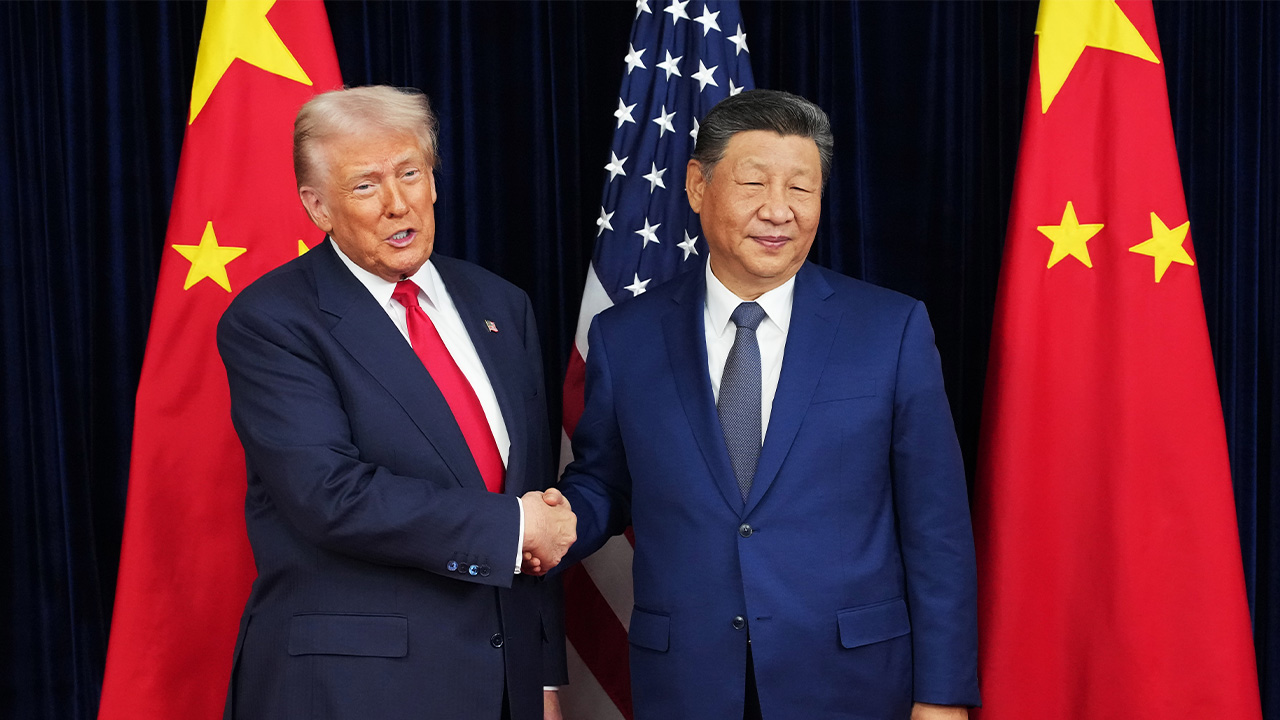Business
Trump and Xi Finalize Major Trade Agreement, Easing Tensions

The White House announced a significant trade agreement between President Donald Trump and Chinese President Xi Jinping following their bilateral meeting in Busan, South Korea on October 30, 2025. This agreement, characterized by the administration as a “historic” accomplishment, aims to alleviate ongoing tensions between the two largest economies in the world.
The deal encompasses reductions in U.S. tariffs and a range of commitments from China. According to the White House, the agreement is designed to “safeguard U.S. economic strength and national security while putting American workers, farmers, and families first.”
Under the terms of this agreement, China has committed to several key actions. Most notably, it will curb the flow of fentanyl precursor chemicals into the United States. Additionally, China has agreed to suspend new export controls on rare earth elements and magnets. The country will also reopen its markets to U.S. soybeans and other agricultural products, lifting retaliatory measures against major U.S. companies.
Key commitments from China include:
– Suspending new export controls on rare earths announced on October 9.
– Issuing general licenses for exports of rare earths, gallium, germanium, antimony, and graphite.
– Taking “significant measures” to control the flow of fentanyl into the U.S.
– Suspending all retaliatory tariffs imposed since March, which include tariffs on U.S. agricultural products such as soybeans, pork, corn, and dairy.
– Removing non-tariff countermeasures targeting U.S. industries.
– Purchasing 12 million metric tons of U.S. soybeans by the end of the year and committing to 25 million tons annually through 2028.
– Resuming imports of U.S. sorghum and hardwood logs.
– Lifting sanctions imposed in response to U.S. investigations into China’s maritime, logistics, and shipbuilding sectors.
In exchange, the U.S. has agreed to reduce tariffs on Chinese imports—initially imposed to limit fentanyl flows—by 10 percentage points starting on November 10, 2025. The U.S. will also extend certain Section 301 tariff exclusions through November 10, 2026 and delay enforcement of a new export rule targeting affiliates of blacklisted Chinese firms until the same date.
The White House has expressed that this agreement is part of a series of “historic wins for the American people.” Trump’s visit to Asia also yielded new trade agreements with Malaysia and Cambodia and established frameworks for negotiations with Thailand and Vietnam. Furthermore, the trip resulted in expanded investment commitments from Japan and South Korea.
“This trade and economic deal caps President Trump’s successful trip to Asia, where he delivered a series of historic wins for the American people,” a White House statement noted.
This agreement marks a crucial step in reshaping trade relations in the Asia-Pacific region and could have lasting implications for global commerce. As both nations work towards implementing the terms of this agreement, the international business community will be closely monitoring its effects on market dynamics and economic stability.
-

 Lifestyle3 months ago
Lifestyle3 months agoLibraries Challenge Rising E-Book Costs Amid Growing Demand
-

 Sports3 months ago
Sports3 months agoTyreek Hill Responds to Tua Tagovailoa’s Comments on Team Dynamics
-

 Sports3 months ago
Sports3 months agoLiverpool Secures Agreement to Sign Young Striker Will Wright
-

 Lifestyle3 months ago
Lifestyle3 months agoSave Your Split Tomatoes: Expert Tips for Gardeners
-

 Lifestyle3 months ago
Lifestyle3 months agoPrincess Beatrice’s Daughter Athena Joins Siblings at London Parade
-

 World3 months ago
World3 months agoWinter Storms Lash New South Wales with Snow, Flood Risks
-

 Science3 months ago
Science3 months agoTrump Administration Moves to Repeal Key Climate Regulation
-

 Business3 months ago
Business3 months agoSoFi Technologies Shares Slip 2% Following Insider Stock Sale
-

 Science2 months ago
Science2 months agoSan Francisco Hosts Unique Contest to Identify “Performative Males”
-

 Science3 months ago
Science3 months agoNew Tool Reveals Link Between Horse Coat Condition and Parasites
-

 Sports3 months ago
Sports3 months agoElon Musk Sculpture Travels From Utah to Yosemite National Park
-

 Science3 months ago
Science3 months agoNew Study Confirms Humans Transported Stonehenge Bluestones









